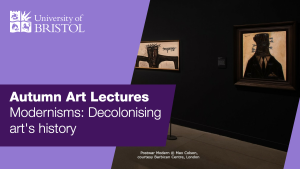By Professor Ad Putter and Professor Kathleen Kennedy, Co-Directors of the Centre for Medieval Studies and Professor Marianne Ailes, former Co-Director of the Centre
The Centre for Medieval Studies is a leading centre for research and training in all aspects of medieval studies, providing an ideal research environment for staff and graduate students in an area that is inherently interdisciplinary. With more than 30 Centre staff members from across the Faculty of Arts and beyond, we have an exceptionally broad range of specialists learning from the different methodologies of our individual disciplines.
Internally, the Centre nourishes excellence in research, promoting interdisciplinary research and training in medieval studies, facilitating grant capture, and providing a network for mutual support and exchange of knowledge and expertise. Lecturer, Dr Steve Bull, comments:
‘As an ECR still finding my place in the wider academic community, the advice, support, and connections that I have gained through the CMS have been invaluable. There is a genuine feeling of collegiality amongst the centre’s members.’
We are raising the profile of Bristol’s medieval research community nationally and internationally. We have an extensive network of partners, including local heritage organisations, facilitating impact, and offering student placements (e.g., Bristol Cathedral and Berkeley Castle), and national and international research partners. Professor David Wallace (University of Pennsylvania), a frequent visitor to the Centre, comments:
‘Bristol’s Centre for Medieval Studies has great medievalists across the range to sift the secrets of Bristol (a great medieval city), of Europe, and of the global Middle Ages. A truly exceptional centre for student education and international scholarly collaboration.’
We lead several externally-funded projects. A recent project we initiated is the Marie-Curie Doctoral Training Network ‘Re-mediating the Early Book: Pasts and Futures’ (REBPAF); it will support 13 PhD researchers at the universities of Bristol, Galway, Antwerp, Alicante, Vienna and Zürich, enhancing our already strong postgraduate cohort and international reach. PhD applications for the REBPAF project close on 10 January.
We offer exceptional support to our postgraduates, integrating them into our research community with regular social events and research seminars, some tailored to meet their needs, including seminars on ‘what every medievalist needs to know about…’ (useful for us all, but especially early career researchers) and an annual ‘student choice’ seminar with a speaker nominated by the students. We also host on our Blackboard site a constantly upgraded ‘training hub’ with online resources and run a range of reading groups, notably for medieval languages, such as Old French and medieval Latin. Our successful MA in Medieval Studies, with its unique placement unit, attracts students from different disciplines and diverse backgrounds with a high conversion rate to postgraduate research, here and elsewhere.
A highlight is the annual postgraduate conference, the longest-running of its kind; this brings to Bristol, and now also online, an international group of postgraduates. PhD student Maria Rupprecht, from Germany, who chaired last year’s organising committee, notes:
‘It is the perfect environment for postgraduates to present their research in progress and connect with medievalist peers and leading scholars from Bristol and beyond in a most benevolent, constructive, and supportive framework. The conference is an absolute highlight in the CMS. It is conceptualised, organised, and managed by Bristol’s postgrads and with this approach allows for discovering and developing organisational and managerial skills as well as teamwork in a committed and friendly environment.’
In the year ahead, in addition to our regular programme, we look forward to strengthening local ties through the research of our BA Global Professor, working with Bristol Central Library on their early books, including a planned public workshop. Visiting professors enrich our research environment: we are currently hosting a specialist in Old French from Stockholm, and we look forward to welcoming a Newton International Fellow next year. Our research into the past always looks to the future.
Professor Ad Putter and Professor Kathleen Kennedy, Co-Directors, and Professor Marianne Ailes, former Co-Director, Centre for Medieval Studies





 Our theme this year coincides with Bristol’s Festival of Ideas 2022, titled Modernism 1922, which looks to the legacies of that remarkable year – from the publication of James Joyce’s Ulysses and T S Elliot’s The Waste Land to the famous Bauhaus exhibition in Calcutta (now Kolkata). A tribute to Kevin Jackson’s book, Constellation of Genius: 1922: Modernism and All That Jazz, the Festival explores 1922 via film screenings, discussions and new commissions.
Our theme this year coincides with Bristol’s Festival of Ideas 2022, titled Modernism 1922, which looks to the legacies of that remarkable year – from the publication of James Joyce’s Ulysses and T S Elliot’s The Waste Land to the famous Bauhaus exhibition in Calcutta (now Kolkata). A tribute to Kevin Jackson’s book, Constellation of Genius: 1922: Modernism and All That Jazz, the Festival explores 1922 via film screenings, discussions and new commissions.


 Dr Xiaochun Zhang (
Dr Xiaochun Zhang ( Dr Richard Cole (
Dr Richard Cole (


